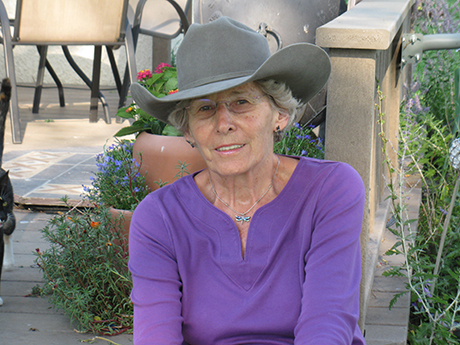If you go for in for the annual Wellness check that Medicare requires, you’ll be asked a number of questions, one of which is, “Do you feel safe at home?” One of my friends does not, and her situation is one that most of us may not consider. The following is shared in the hope that we’ll all be more aware of our responsibilities to the community.
“I don’t know if it would be less terrorizing if I could see an aggressive dog coming” said Dee Brauninger after the third attack on her service dog in the same neighborhood in as many years.
Dee and her leader dog, Willi, were mailing a letter when two large dogs were suddenly upon them. She told the police officer that the owner might have chosen to let go of the dogs rather than be dragged across the street.
“Willi’s view of the German shepherd was blocked until it was too late,” Dee said. After returning to safety, she checked for injury. Finding only tenderness and a patch of dog slobber, she praised her guide’s bravery and they continued their walk. This immediate return to work reminds a service dog that she has a job to do, kind of like getting back in the saddle after being bucked off. The trembling, comforting, and the nightmares would come later.
Both were lucky to avoid physical injury this time, but the psychological trauma remains. A guide dog understands and accepts its responsibilities. As a trained professional, it is ready to sacrifice its life. Yet, once attacked, even a service dog can lose confidence. It might refuse to lead. If it concludes that all dogs are out to harm, the guide can become aggressive itself, and must be retired.
Three summers ago, Leader dog Willi was not injured during the first attack, but that shepherd knocked Dee down. She required six weeks in a recovery boot. That dog was untethered in the back of a country visitor’s pickup. Again, it was hidden from view as Dee and Willi passed on the sidewalk only yards from the plotting dog. The uproar of barking dogs and yelling brought both owner and neighbor before worse could happen.
Later that same summer, another adult allowed a pit bull to be loose in her yard. It came from behind, attacked Willi and refused to let go. That one required a trip to the vet. The pit bull’s owner had hoped to rehabilitate the incorrigible rescue dog after it had been “in the pit.”
Leader Dog partners are instructed to tend immediately to an attacked service dog’s psychological trauma. Twice now, Dee’s friend has brought his trustworthy dog to help. After the earlier attack, Willi could only manage if the gentle dog stayed on the opposite sidewalk. This time, the two dogs met nose to nose with wagging tails. This time, Dee knows Willi will recover.
“I don’t know if a sighted person can fully understand how much bravado it takes both my guide dog and me to leave the house each day,” she said. “I try to make it all look easy. I wonder how many times this can happen to a service dog before…”
The Rev. Drs. Dee and Bob Brauninger served as associate pastors at First Presbyterian Church during the first five years of their fifteen year co-pastorate at the former Congregational United Church of Christ in Hemingford, Nebraska in the 1980s.They returned to the area in late retirement to be near family, and Dee has stayed on after Bob’s death.
There’s nothing of substance I can add to Dee’s account of the attacks, and her concerns, except that it’s incumbent on all of us to be sure our neighbors feel safe at home.

